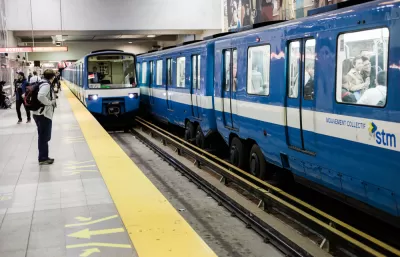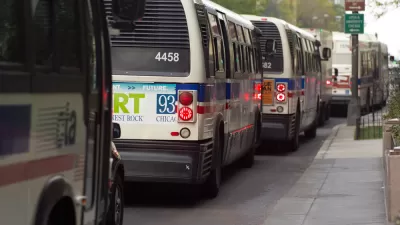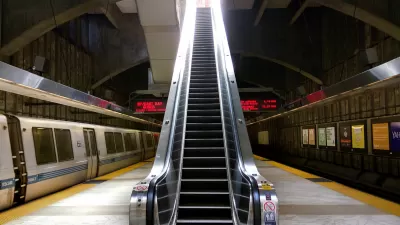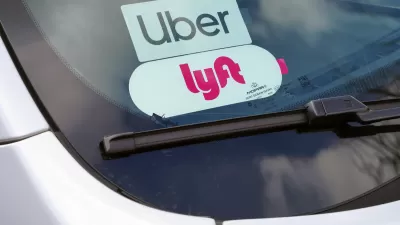"Canada looks a lot like much of the US, in terms of economic types, city sizes and ages, development patterns," Jarret Walker says. So why can't Americans keep pace with Canadian public transit?

Transit ridership is falling. The growth of ride share, low fuel costs and increased car ownership are all likely part of the reason, but it's possible to grow transit in this climate. "But notice the big picture: In a year when urban transit ridership fell overall in the US, it rose in Canada," Jarret Walker writes.
Canada is doing some things notably differently than the United States is, Walker writers: "Canadian cities just have more service per capita than the most comparable US cities. This results in transit networks that remain more broadly useful in the face of competition from other modes." Vancouver, where transit ridership has grown more than any other city in either country can be a particularly instructive example with its concentration of development around transit stations and prevalence of higher gas prices. "Notably, ride-hailing services like Uber and Lyft are not available in Vancouver due to provincial legislation," Walker adds.
To the United States, Canada is the "least foreign country" Walker argues. Americans should be looking to make their cities more like their Canadian counterparts.
FULL STORY: Why Does Ridership Rise or Fall? Lessons from Canada

Alabama: Trump Terminates Settlements for Black Communities Harmed By Raw Sewage
Trump deemed the landmark civil rights agreement “illegal DEI and environmental justice policy.”

Study: Maui’s Plan to Convert Vacation Rentals to Long-Term Housing Could Cause Nearly $1 Billion Economic Loss
The plan would reduce visitor accommodation by 25% resulting in 1,900 jobs lost.

Planetizen Federal Action Tracker
A weekly monitor of how Trump’s orders and actions are impacting planners and planning in America.

Waymo Gets Permission to Map SF’s Market Street
If allowed to operate on the traffic-restricted street, Waymo’s autonomous taxis would have a leg up over ride-hailing competitors — and counter the city’s efforts to grow bike and pedestrian on the thoroughfare.

Parklet Symposium Highlights the Success of Shared Spaces
Parklets got a boost during the Covid-19 pandemic, when the concept was translated to outdoor dining programs that offered restaurants a lifeline during the shutdown.

Federal Homelessness Agency Places Entire Staff on Leave
The U.S. Interagency Council on Homelessness is the only federal agency dedicated to preventing and ending homelessness.
Urban Design for Planners 1: Software Tools
This six-course series explores essential urban design concepts using open source software and equips planners with the tools they need to participate fully in the urban design process.
Planning for Universal Design
Learn the tools for implementing Universal Design in planning regulations.
Caltrans
Smith Gee Studio
Institute for Housing and Urban Development Studies (IHS)
City of Grandview
Harvard GSD Executive Education
Toledo-Lucas County Plan Commissions
Salt Lake City
NYU Wagner Graduate School of Public Service





























